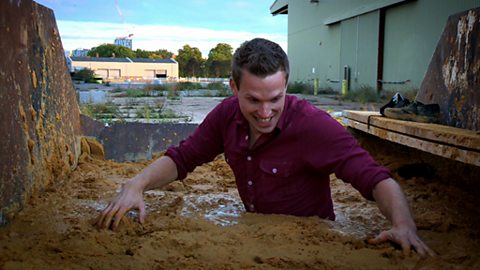Greg Foot finds out why boomerangs return to the thrower.
He explains that the shape of the boomerang is like a planeãs wing that generates lift, and that the spinning boomerang acts as a gyroscope.
Greg then explains how gyroscopes work and demonstrates the gyroscopic procession that results in a ãhands-freeã bicycle turning and a correctly thrown boomerang moving in a curve to return to the person who threw it.
Teacher Notes
Students could investigate why an aerofoil generates lift and perform simple classroom experiments such as blowing over the top of a sheet of paper, when held hanging by two of the sheets corners to form an aerofoil shape.
Curriculum Notes
These short films will be relevant for teaching physics and chemistry at both KS3 and KS4 in England, Wales and Northern Ireland and National 4/5 in Scotland.
More from the Secrets of Everything:
Can you make a star on Earth? video
Greg Foot demonstrates that a star is just like a continuous chemical reaction.
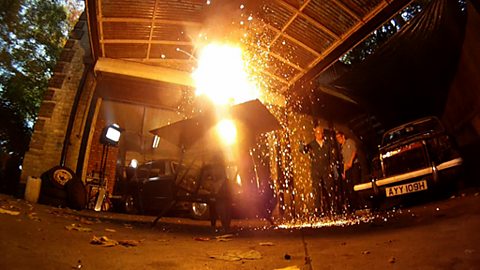
How big is one giant leap on the Moon? video
Greg Foot finds out how high he can jump on Earth compared to on the surface of the Moon.
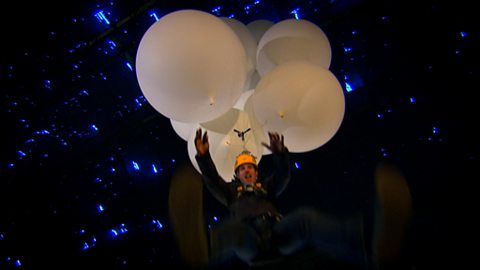
How can you survive a lightning strike? video
Just how dangerous is lightning and how can anyone survive a direct lightning strike?
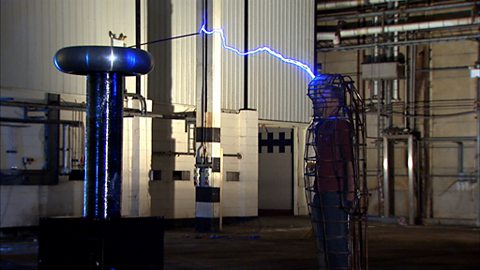
If the whole world jumped at the same time would the planet move? video
Greg Foot investigates the question on everyone's lips; what if everyone in the world jumped at the same time?

Could I survive an asteroid strike? video
Greg Foot investigates what would happen if an asteroid collided with Earth.
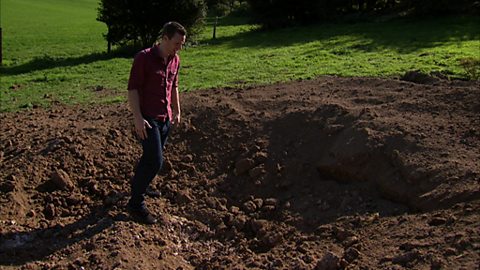
Why is the sky blue? video
Greg Foot discovers why the sky is blue by examining the effect of the atmosphere.
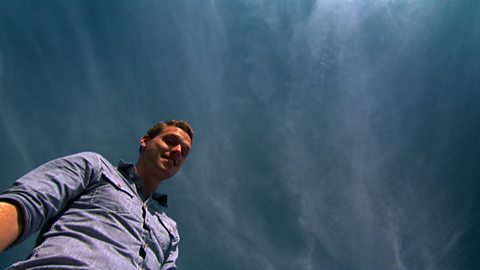
Why can't I run fast? video
Will humans be able to run faster and continue to break world records?
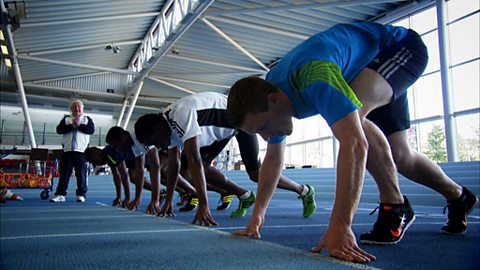
Why is fire hot? video
Greg Foot demonstrates how fuel, heat and oxygen are required to produce fire.
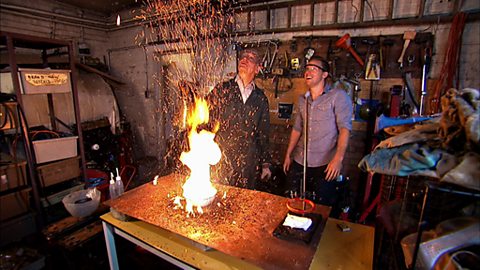
Can I escape from quicksand? video
Why quick sand is dangerous and the forces involved that make it difficult to escape from.
